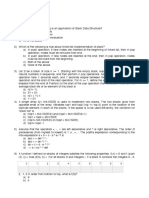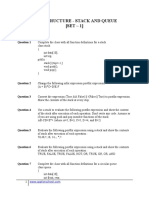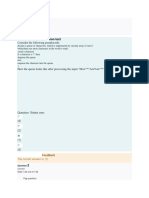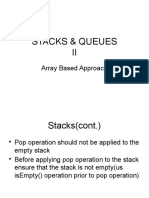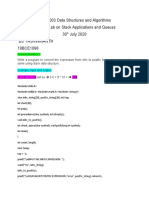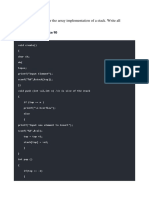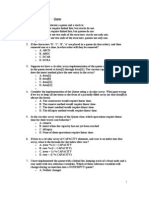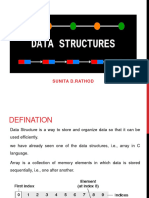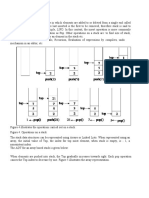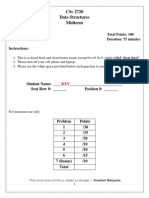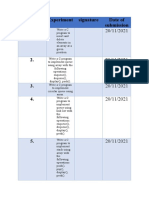0% found this document useful (0 votes)
48 views9 pagesStack and Queue QA
The document contains a series of practice questions related to data structures, specifically stacks and queues. It includes questions on implementation, time complexity, and error identification, along with the correct answers for each question. The questions cover various aspects such as the number of stacks needed for a queue, time complexities of operations, and specific coding scenarios.
Uploaded by
lalitha vaddadiCopyright
© © All Rights Reserved
We take content rights seriously. If you suspect this is your content, claim it here.
Available Formats
Download as DOCX, PDF, TXT or read online on Scribd
0% found this document useful (0 votes)
48 views9 pagesStack and Queue QA
The document contains a series of practice questions related to data structures, specifically stacks and queues. It includes questions on implementation, time complexity, and error identification, along with the correct answers for each question. The questions cover various aspects such as the number of stacks needed for a queue, time complexities of operations, and specific coding scenarios.
Uploaded by
lalitha vaddadiCopyright
© © All Rights Reserved
We take content rights seriously. If you suspect this is your content, claim it here.
Available Formats
Download as DOCX, PDF, TXT or read online on Scribd
/ 9




